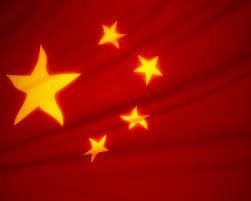French pharmaceutical giant, Sanofi is under investigation in China after a local newspaper – the Guangzhou-based 21st Century Business Herald – published bribery allegations. Several European companies are being probed.
A whistleblower, who asked to remain anonymous, told the newspaper that Sanofi paid a total of CN¥1.69 million ($274,000) at 79 hospitals to 503 doctors in Hangzhou, Gangzhou, Shanghai and Beijing.
These bribes allegedly occurred in 2007 and were passed off as “research grants”.
According to Xinhua, China’s official news agency, the municipal health bureau of Beijing will coordinate with its equivalents in the other cities to investigate the matter.
Xinhua added that determining at what point a “research grant” becomes an example of corruption will be key to the case.
Is bribery standard practice in medicine in China?
Multinational pharmaceutical companies do pay bribes routinely in China, five drug reps told the BBC in an interview. The BBC stressed that none of them wanted to be identified.
The pharmaceutical salesmen added that bribes were necessary in China to increase sales. However, one of them stressed that bribes were rare in China and he only did it to bypass bureaucracy.
Sanofi “taking claims very seriously”
In a statement on Sunday, Sanofi said it is taking the bribery claims “very seriously” and will liaise fully with local authorities.
Sanofi added “it would be premature to comment on events that may or may not have occurred in 2007.”
Sanofi says that officials from the AIC (Administration for Industry and Commerce, China) entered its regional office in Shenyang city at the beginning of August, 2013, and took away documents.
The company said that when this occurred it knew nothing of any bribery allegations.
Sanofi (Sanofi-Aventis) is a French multinational pharmaceutical companies with headquarters in Paris.
Sanofi is the third largest drug company worldwide.
China clamping down on Sanofi and other European drug companies
Since the beginning of the summer, Chinese authorities have been bearing down on European pharmaceutical multinationals.
In July Beijing accused British GSK (GlaxoSmithKline) of bribing hospital doctors and officials in an alleged price-fixing move.
GSK is still under investigation and some executives are still detained.
AstraZeneca PLC, another British based drug company, says that Chinese regulators questioned its employees.
Danish multinational, Novo Nordisk A/S, said that officials entered its production facility in Tianjin city, and asked for details on its operations. Although Novo Nordisk was not told why they were visited, it has not been accused by the AIC of any wrongdoing.
Is this retaliation for EU’s solar panel clampdown
The European Union launched an antidumping investigation into the imports of solar panels from China in September 2012.
A complaint had been lodged by EU Pro Sun on July 25th, 2012, claiming solar panels and their spare parts coming in from China were being sold at below market value.
The European Union (EU) responded and started penalizing Chinese imports of these products with extra taxes.
Eventually the EU and China reached a deal.
Some business analysts wonder whether this recent clampdown on European pharmaceutical companies in China is a warning shot from China.

